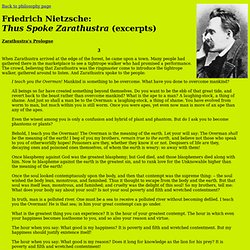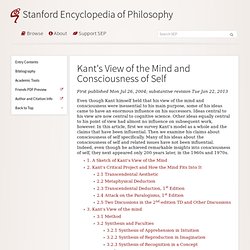

Logical Paradoxes. Rhetological Fallacies. Ethics Updates Home Page. Moral theory; relativism; pluralism; religion; egoism; utilitarianism; deontology; duty; human rights; anti-theory; gender; race; multiculturalism;. Top 10 Schools of Philosophy. Miscellaneous Through history, various forms of philosophy have developed.

Many have fallen by the wayside but a number have stuck. This is a list of the top 10 schools of philosophy. 10. Solipsism Nothing exists; Even if something exists, nothing can be known about it; Even if something could be known about it, knowledge about it can’t be communicated to others. - Gorgias (485-375 BC) Solipsism is the idea that one can only know that one’s self exists and that anything outside the mind, such as the external word, can not be known to exist. Solipsism is often associated with nihilism and materialism. 9. Everything is determined, the beginning as well as the end, by forces over which we have no control. . - Albert Einstein (1879-1955) Determinism is the philosophical theory that every event, including human cognition and behaviour, decision and action, is determined by an unbroken chain of prior occurrences. 8.
. - John Stuart Mill (1806-1873) 7. . - Epicurus (341-270 BC) Philosophy Timeline. List of unsolved problems in philosophy. This is a list of some of the major unsolved problems in philosophy.

Clearly, unsolved philosophical problems exist in the lay sense (e.g. "What is the meaning of life? ", "Where did we come from? ", "What is reality? ", etc.). Aesthetics[edit] Essentialism[edit] In art, essentialism is the idea that each medium has its own particular strengths and weaknesses, contingent on its mode of communication. Art objects[edit] Nietzsche: Thus Spoke Zarathustra (excerpts)
Back to philosophy page Zarathustra’s Prologue When Zarathustra arrived at the edge of the forest, he came upon a town.

Many people had gathered there in the marketplace to see a tightrope walker who had promised a performance. The crowd, believing that Zarathustra was the ringmaster come to introduce the tightrope walker, gathered around to listen. And Zarathustra spoke to the people: I teach you the Overman! And while Zarathustra was speaking in this way, someone in the crowd interrupted: "We've heard enough about the tightrope walker; now it's time to see him!
" Zarathustra, however, looked at the people and wondered. Man is a rope stretched between the animal and the Overman -- a rope over an abyss. When Zarathustra had spoken these words, he again looked at the people, and was silent. There they stand; there they laugh: they do not understand me; I am not the mouth for these ears. And thus spoke Zarathustra to the people: Western Philosophy. Selected Index to The Philosopher Journal. Kant's View of the Mind and Consciousness of Self. First published Mon Jul 26, 2004; substantive revision Tue Jan 22, 2013 Even though Kant himself held that his view of the mind and consciousness were inessential to his main purpose, some of his ideas came to have an enormous influence on his successors.

Ideas central to his view are now central to cognitive science. Other ideas equally central to his point of view had almost no influence on subsequent work, however. In this article, first we survey Kant's model as a whole and the claims that have been influential. Then we examine his claims about consciousness of self specifically. 1. In this article, we will focus on Immanuel Kant's (1724–1804) work on the mind and consciousness of self and related issues. Some commentators believe that Kant's views on the mind are dependent on his idealism (he called it transcendental idealism). Three ideas define the basic shape (‘cognitive architecture’) of Kant's model and one its dominant method.
The mind is complex set of abilities (functions). Philosophy Timeline. Schopeng.<br>htm: Thirty - Eight Ways to Win an Argument, by Schopenhauer. 17.03 Introduction to Political Thought, Spring 2004. Western Philosophy. The Analysis of mind, by Bertrand Russell. Internet Encyclopedia of Philosophy. Fallacies. Dr.

Michael C. Labossiere, the author of a Macintosh tutorial named Fallacy Tutorial Pro 3.0, has kindly agreed to allow the text of his work to appear on the Nizkor site, as a Nizkor Feature. It remains © Copyright 1995 Michael C. Labossiere, with distribution restrictions -- please see our copyright notice. If you have questions or comments about this work, please direct them both to the Nizkor webmasters (webmaster@nizkor.org) and to Dr. Other sites that list and explain fallacies include: Constructing a Logical Argument Description of Fallacies In order to understand what a fallacy is, one must understand what an argument is. There are two main types of arguments: deductive and inductive. Philosophy since the Enlightenment, by Roger Jones.
Searle: Philosophy of Language, lecture 1. Thou shalt not commit logical fallacies. Image l3dq. The complete history of philosophy visualized in one graph.